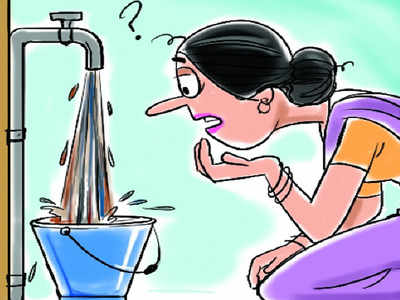The Time of India 27.08.2012
‘Social responsibility can solve water woes’
table in Gurgaon, leaving behind issues as power shortage and labour
unrest, is the most worrying concern for the Haryana government, says Congress
MP Deepender Hooda. Gurgaon has had its worst summer this year as the
residents grappled with a peaking power demand of 200 lakh units and 80
MGD of water supply. “Power remains an issue but I don’t think it’s the
biggest issue. Not even law and order. The bigger challenge for us in
Gurgaon is tackling the water crisis. Unfortunately, this year’s summer
was bad, that compounded the situation,” said Hooda.The MP from Rohtak
believes that the problem is so big that it would not be possible for
the government to tackle it alone and it needed support from civil
society.
“People should be responsible and do its bit
wholeheartedly to conserve water. People’s support is a must,” said
Hooda.”Transporting water from other cities is not the solution. Laws
already exist and recently even the high court has issued directions.
The solution is the social responsibility
by the leading indutrialists and communities. There has to be a
non-political movement by social groups and residents welfare,” said
Hooda.
According to the department of town and country planning
(DTCP), there are about 1,33,900 sanctioned water connections in
Gurgaon, including 29,942 connections in the old town.
The
water shortage in the city has fluctuated between as low as 30MGD to as
high as 40MGD. A month ago, the demand had shot up so high that Punjab
and Haryana high court, in its July 16 order, had to completely prohibit
the use of groundwater for any new construction in Gurgaon.The HC,
through another order on July 24, has already made it mandatory for all
Gurgaon houses with more than 100-square-metre covered area each to have
a rainwater harvesting system. The city’s groundwater reserves have
already touched the red zone due to unchecked use. According to the
Groundwater Cell department, the water table had plummeted in
July-August by a further 90cm to 1 metre, making its availability a
serious concern.
To tide over this crisis and also in the wake
of the recent high court order banning use of underground water for
construction work, HUDA
has now decided to supply them treated sewage water for the purpose.
“Nearly 98MGD sewage that is produced in the city can be converted into
water. However, these steps need much more investment. Rainwater
harvesting systems are a shorter and much more viable route,” said a
senior official at HUDA.

